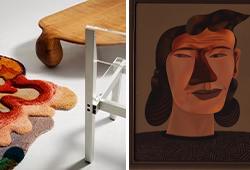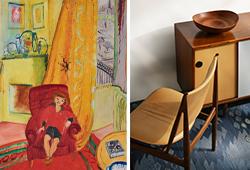Sigrid Hjertén
"Mot aftonen, Stadsgården"
Signed Hjertén. Canvas, 73.5 x 100.5 cm.
Alkuperä - Provenienssi
Svensk-Franska Konstauktioner, Stockholm, auction 93, 4 November 1969, cat. no. 45.
Note verso: Civilingenjör B. Erik Lundberg (1891‑1980), Malmö.
Private collection.
Näyttelyt
Konstakademien, Stockholm, 1936, "Sigrid Hjertén", cat. no. 249.
Kirjallisuus
Anders Wahlgren, Sigrid Hjertén, 2008, compare with "Sol över hamnen" (1934) p. 153 and "Gråväder" (1934) p. 154.
Elisabeth Haglund, Sigrid Hjertén, 1985, compare with "Lastångare i Stadsgården" (1934) p. 62.
Muut tiedot
In the 1930s, Sigrid Hjertén returned to her favoured subject matter; the views across the wharf of Stadsgården in Stockholm studded with cranes, which she found fascinating. In her painting, she looks back through her memories and experiences, opening up her innermost being, and picking out the best. Using her brushes and her love of painting she regains a delight in creativity, which explodes with colour. A suite of paintings with cranes is painted in different lights, from early morning to late evening, similarly to Claude Monet who depicted his favourite subjects throughout the day and the different, shifting light.
Hjertén was consistently fascinated by the view over Stadsgården, with its wharfs and railway wagons, and on to Gamla Stan where towers and pinnacles soared among the clouds. The sky in this painting is shimmering pink, giving the work a monumental effect; the brushstrokes are diffused and the composition charged with movement. Sigrid’s paintings from the 1930s are dissolved, almost impressionistic. The large, black crane in the foreground rises high above the water, up to the sky.
A friend and fellow artist from the Matisse academy, Carl Palme, described her paintings from the first half of the 1930s as belonging to Hjertén’s “fully-fledged period”, when she had found her way to something that was “her own”. With firm, secure brushstrokes and consistent underpainting, Sigrid prepared the canvas, turning it into a willing soundboard. Carl Palme particularly pointed out the Stadsgården subjects in which her technique of using broad brushstrokes and then applying flecks of paint in different colours “created brilliant and virile, imposing works of art”.



























